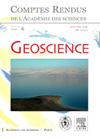气候变化与教育
IF 1.9
4区 地球科学
Q3 GEOSCIENCES, MULTIDISCIPLINARY
引用次数: 0
摘要
作为2016年批准的《巴黎协定》义务之一,气候变化教育是大规模影响社会行为和选择的宝贵工具。这也是年轻人的要求,他们比其他人更担心未来,但这种教育也可以帮助调动他们的精力。目前正在作出许多努力来提供这种教育,这种教育是系统的和多学科的,需要对课程进行重大改革。教师的作用是至关重要的,他们的支持也是如此。在许多倡议中,我们认为有必要向他们提供基于气候科学知识的最佳水平的教育工具,即政府间气候变化专门委员会(ipcc)的报告。应对气候变化教育是2016年批准的《联合国气候变化框架公约巴黎协定》的一部分。教育对于在人们的行为和社会选择的广泛范围内发挥作用是宝贵的。这也是青年的一项要求,他们比其他人更面临着令人担忧的未来,但在调动精力方面可以得到帮助。为了实施它,出现了许多倡议,而它的系统和跨学科特点要求学校课程进行重大改革。教师的作用是至关重要和必不可少的。因此,我们认为提出基于当前气候方面的最佳知识,即政府间气候变化专门委员会(IPCC)的报告的教学资源至关重要。本文章由计算机程序翻译,如有差异,请以英文原文为准。
Climate change and education
Figurant comme une des obligations de l’Accord de Paris ratifié en 2016, l’éducation au changement climatique est un outil précieux pour agir à grande échelle sur les comportements et les choix des sociétés. Elle est aussi une requête de la jeunesse, confrontée plus que d’autres à un avenir qui l’inquiète, mais cette éducation peut aussi aider à mobiliser son énergie. Nombre d’efforts surgissent pour assurer cette éducation, dont le caractère systémique et pluridisciplinaire demande une évolution substantielle des programmes scolaires. Le rôle des professeurs est crucial et leur accompagnement l’est tout autant. Parmi nombre d’initiatives, il nous semble essentiel de leur offrir des outils pédagogiques basés sur le meilleur état de l’art des connaissances scientifiques sur le climat, à savoir les rapports du Groupe d’experts Intergouvernemental pour l’Étude du Climat (GIEC). Education dealing with climate change is part of the UNFCCC Paris Agreement ratified in 2016. Education is precious to act on a broad scale on people’s behavior and society choices. It is also a demand from the youth who, more than others, is facing a worrying future, but can be helped for a mobilization of energies. Numerous initiatives emerge to implement it, while its systemic and interdisciplinary character requests a significant evolution of school’s curricula. The role of teachers is crucial and accompanying them essential. We therefore consider critical to propose pedagogical resources, which are based upon the best current knowledge on climate, i.e. the reports from the Intergovernmental Panel on Climate Change (IPCC).
求助全文
通过发布文献求助,成功后即可免费获取论文全文。
去求助
来源期刊

Comptes Rendus Geoscience
地学-地球科学综合
CiteScore
2.80
自引率
14.30%
发文量
68
审稿时长
5.9 weeks
期刊介绍:
Created in 1835 by physicist François Arago, then Permanent Secretary, the journal Comptes Rendus de l''Académie des sciences allows researchers to quickly make their work known to the international scientific community.
It is divided into seven titles covering the range of scientific research fields: Mathematics, Mechanics, Chemistry, Biology, Geoscience, Physics and Palevol. Each series is led by an editor-in-chief assisted by an editorial committee. Submitted articles are reviewed by two scientists with recognized competence in the field concerned. They can be notes, announcing significant new results, as well as review articles, allowing for a fine-tuning, or even proceedings of symposia and other thematic issues, under the direction of invited editors, French or foreign.
 求助内容:
求助内容: 应助结果提醒方式:
应助结果提醒方式:


